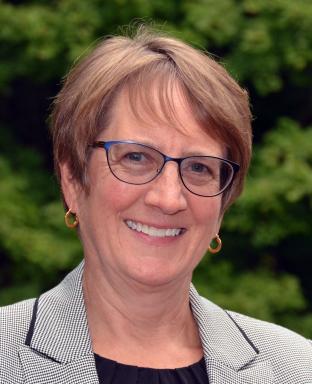Areas of Interest
Our laboratory research focuses on the genetic basis of neural development and disorders of human development. Specifically, we study genes predicted to influence neuronal stem cell proliferation, differentiation, and migration. We are interested in the epigenetic roles of an ATP dependent chromodomain remodeling gene, CHD7, in the developing inner ear, olfactory system, and central nervous system. CHD7 pathogenic variants in humans cause CHARGE syndrome, a congenital anomaly condition that affects the brain, eyes, ears, heart, and craniofacial structures. We use genetic approaches in mice to study how loss of CHD7 disrupts neuronal and organ development. We ask how changes gene expression with loss or gain of CHD7 and related chromatin remodelers leads to phenotypic variability and how we can modify CHD7 expression or function in cells and tissues. We also participate in collaborative studies to better understand the genetic mechanisms of autism and other developmental disorders of the nervous system. Our studies impact our understanding of how the nervous system and related organs develop, and how we can design therapies to improve outcomes for people affected by these developmental disorders.
Honors & Awards
- 2015-2017 Rudi Ansbacher Women in Academic Medicine Leadership Scholar
- 2017 “Star in CHARGE” Award, International CHARGE Syndrome Foundation
- 2018-2021 Scholar, Taubman Institute, Michigan Medicine
- 2019-2020 Participant, Executive Leadership in Academic Medicine (ELAM)
Published Articles or Reviews
- Balendran V, Skidmore JM, Ritter KE, Gao J, Cimerman J, Beyer LA, Hurd EA, Raphael Y, Martin DM. Chromatin Remodeler CHD7 is Critical for Cochlear Morphogenesis and Neurosensory Patterning. Developmental Biology (2021) Sep;477:11-21. PMID: 34004180. PMC8277762.
- Yao, H, Hannum, DF, Zhai, Y, Hill, SF, Albanus, RD, Lou, W, Skidmore, JM, Sanchez, G, Saiakhova, A, Bielas, SL, Scacheri, P, Ljungman, M, Parker, SCJ, Martin, DM. CHD7 promotes neural progenitor differentiation in embryonic stem cells via altered chromatin accessibility and nascent gene expression. Sci Reports (2020) Oct 15;10(1):17445. PMID: 33060836.
- Mark N. Ziats, Ayesha Ahmad, John A. Bernat, Rachel Fisher, Megan Glassford, Mark C. Hannibal, Joseph E. Jacher, Natasha Weiser, Catherine E. Keegan, Kristen N. Lee, Tessa B. Marzulla, Bridget C. O'Connor, Shane C. Quinonez, Lauren Seemann, Lauren Turner, Stephanie Bielas, Nicholas L. Harris, Jacob D. Ogle, Jeffrey W. Innis, Donna M. Martin. Genotype-phenotype analysis of patients by genetics evaluation and clinical exome sequencing. (2020) Pediatric Research Mar;87(4):735-739. PMCID:PMC7082194.
- Yao H, Hill SF, Skidmore JM, Sperry ED, Swiderski DL, Sanchez GJ, Bartels CF, Raphael Y, Scacheri PC, Iwase S, and Martin DM. CHD7 represses the retinoic acid synthesis enzyme ALDH1A3 during inner ear development. JCI Insight (2018) Feb 22;3(4). PMID: 29467333.
A full list of publications can be viewed here.

